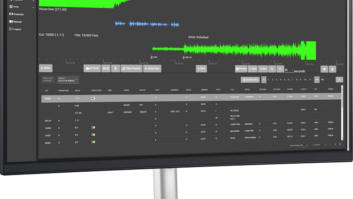An End to the Automation Patent Claim?
Nov 1, 2011 2:00 AM, By Chriss Scherer, editor
When the 2011 NAB Show opened last April, the typical buzz of new technology was interrupted with some confused looks. A company called Mission Abstract Data (a.k.a. DigiMedia) had started contacting radio stations to negotiate licensing fees and filed a lawsuit against several larger broadcast licensees for patent infringement on the use of computer-based radio automation technology. Everyone I spoke to was puzzled by the action. Automation systems have been around for more than a decade, so it was strange the patent holder decided to wait more than 15 years to make a claim. And for the patent holder to go after radio stations – the end users – seemed ridiculous.
Nonetheless, automation manufacturers past and present took it seriously and began their efforts to demonstrate the faults of the patent claim. Radio broadcast trade publications solicited materials from stations to show that computer-based automation systems had been in use before the 1994 patent filing. Manufacturers scrambled to find long-forgotten manuals and documentation.
The outcome loomed over radio broadcasting for several months as appeals and filings were made. But in the middle of October, a sigh of relief came from radio stations when the US Patent and Trademark Office (PTO) issued two office actions that may relieve broadcasters and manufacturers from any potential patent infringement.
The two patents, 5,629,867 and 5,809,246, both relate to a system that retrieves music from a digital database. The patent description included specifications including accessing several hundred songs from a common database of several disk arrays, a processor to program the operation of the station, and work consoles to access the system. Sounds like the system you have likely used all along. There are other provisions in the patent, including access via a telephone and Touch-Tones, and access to the system by a cable TV provider.
Several automation system manufacturers appealed to the PTO claiming the Mission Abstract patents were filed on technology that already existed, and subsequently, the PTO has rejected many of the claims from Mission Abstract Data. Among the exhibits showing the technology already existed before the patent was filed included materials from Arrakis for the Digilink and Dalet.
In patent ‘246, five of the 10 claims were rejected. In patent ‘867, 15 of the 29 claims were rejected. While the patents also cover the use of accessing music via a phone or cable network – aspects that are still being upheld – the elements of a PC with central storage and a shared audio file database have been shown to be existing art from the Arrakis and Dalet materials.
MAD has until December to appeal the decision, and there is still a lawsuit pending. There’s little doubt MAD will continue to try to enforce its patent and obtain licensing agreements from stations. Before this is all over, the US PTO will issue a final office action.
Test results
The national EAS test will take place as this issue is being mailed. Radio magazine has followed the planning and information sharing leading up to the test, including posting a video to demonstrate what radio stations will experience on test day. We welcome your feedback on the test event. Post your comments at RadioMagOnline.com.
November 2011
A look at prefabricated shelters, inside the studios of Merlin Media Chicago, Field Reports on Adobe Audition 5.5 and the Olympus DM-620 and more….
Patent Office Dismisses Mission Abstract Data Automation Claim
The claims relating to PC storage on a hard drive and network access have been rejected….









